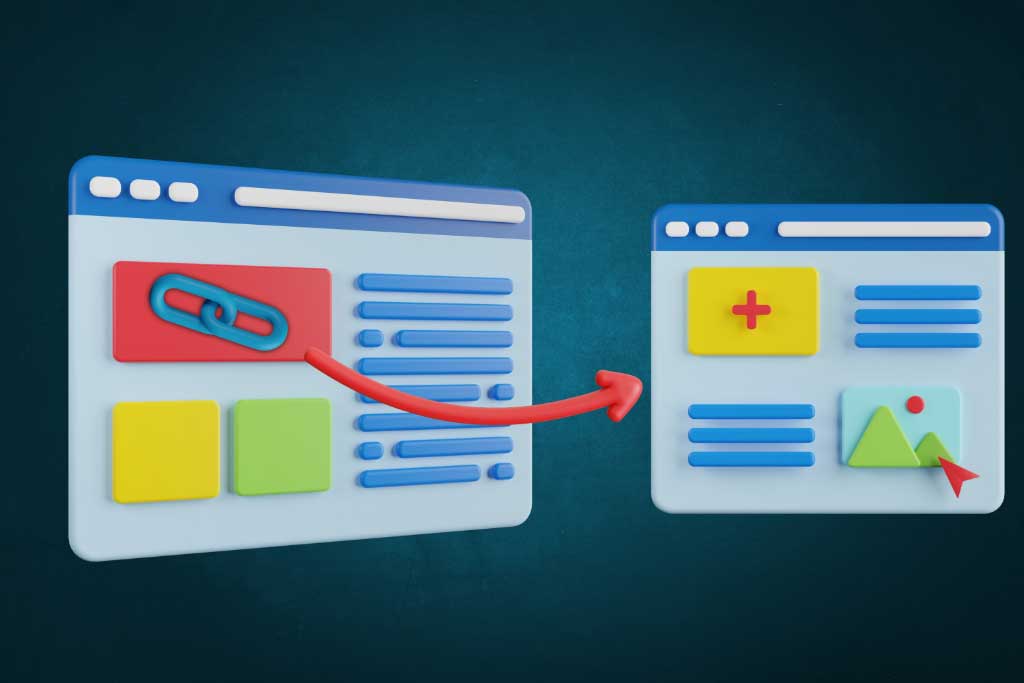In today’s fast-paced world, businesses must adapt quickly to stay ahead of the competition. One of the most effective ways to do this is through digital advertising. As consumers increasingly spend their time online, digital advertising allows businesses to reach their target audience like never before. In this blog post, we’ll explore the advantages of digital advertising and how it can boost your business’s growth and success.
This blog explores the advantages of digital advertising and highlights why it’s become an indispensable tool in the modern marketing toolkit. By the end of this article, you’ll understand why businesses are shifting their focus online and how this transition is reshaping the advertising landscape.
What is Digital Advertising?
Breaking Down Digital Ads
Digital advertising is the art and science of delivering promotional content online. It ranges from simple banner ads on websites to complex campaigns involving social media influencers. The beauty of digital ads is their adaptability; they can be tailored to fit any brand message or audience.
The Rise of Digital Over Traditional
While traditional advertising still holds value, digital advertising is rapidly gaining ground. Why? It’s versatile, measurable, and can reach audiences on a global scale. Unlike TV or print ads, digital ads allow instant feedback and adjustments, making them more dynamic and interactive.
Digital Advertising Platforms
Platforms like Google Ads, Facebook Ads, and Instagram Ads dominate digital advertising. They provide businesses with tools to create campaigns that target specific demographics, interests, and behaviors. These platforms also offer analytics to help advertisers refine their strategies and maximize their return on investment.
Discover Top 12 Digital Advertising Advantages
Cost-Effective Advertising Solutions
One of the primary benefits of digital advertising is its cost-effectiveness. Traditional advertising methods like TV and print can be expensive, especially for small businesses. Digital advertising, on the other hand, allows businesses to reach a large audience at a fraction of the cost.
With digital advertising, you can create a campaign that fits your budget. You can decide how much you want to spend and only pay for the results you achieve, such as clicks or impressions. This means you can allocate your budget more effectively and ensure you get the best return on investment.
Additionally, digital advertising platforms offer various pricing models, such as pay-per-click (PPC) or pay-per-impression (PPI), allowing you to choose the option that best suits your business goals. This flexibility enables businesses of all sizes to compete in the digital marketing landscape.
Precise Targeting Capabilities
One key advantage of digital advertising is its ability to target specific audiences. Unlike traditional advertising, which casts a wide net and hopes to reach the right people, digital advertising allows you to tailor your message to your ideal customer.
With digital advertising, you can use data to segment your audience based on demographics, interests, behavior, and more. This allows you to create personalized ads that resonate with your target audience, increasing the likelihood of conversion.
For example, if you’re a fitness brand targeting health-conscious individuals, you can create ads featuring your latest workout gear and target users who have shown an interest in fitness and wellness. This level of precision targeting can significantly improve your campaign’s effectiveness and generate better results.
Real-Time Performance Tracking
Digital advertising allows businesses to track and measure their campaigns’ performance in real time. This is a significant advantage over traditional advertising, where it can be challenging to gauge a campaign’s success.
With digital advertising, you can access detailed analytics and insights showing your ads’ performance. You can see metrics such as impressions, clicks, conversions, and more, giving you a clear picture of your campaign’s impact.
This real-time tracking lets you make data-driven decisions and optimize your campaigns for better results. If you notice that a particular ad isn’t performing well, you can make adjustments on the fly to improve its effectiveness.
Enhanced Brand Awareness
Digital advertising allows businesses to increase brand awareness and reach a wider audience. You can expose your brand to potential customers who may not have heard of you through various digital channels such as social media, search engines, and display networks.
By creating engaging and visually appealing ads, you can capture the attention of your target audience and leave a lasting impression. This increased visibility can help build brand recognition and establish your business as a leader in your industry.
Furthermore, digital advertising allows you to consistently communicate your brand message across different platforms, ensuring a cohesive and memorable brand experience for your audience.
Flexibility and Adaptability
One of the standout advantages of digital advertising is its flexibility and adaptability. Unlike traditional advertising methods, which can be rigid and difficult to change, digital advertising allows you to pivot and adapt to market changes quickly.
Whether you want to update your ad creative, adjust your targeting parameters, or shift your budget, digital advertising platforms make implementing changes in real time easy. This flexibility enables you to stay agile and responsive to evolving consumer preferences and market trends.
Additionally, digital advertising allows you to test different ad variations and strategies to determine what works best for your business. By conducting A/B testing and experimenting with different approaches, you can optimize your campaigns for maximum impact.
Improved Customer Engagement
Digital advertising allows businesses to engage with their audience in meaningful ways. Through interactive ad formats such as videos, quizzes, and surveys, you can encourage user interaction and foster a deeper connection with your brand.
Unlike traditional advertising, which is often one-way communication, digital advertising allows for two-way interaction between businesses and consumers. This engagement can help build brand loyalty and create a positive perception of your business.
For example, a clothing brand could run a social media ad featuring a quiz that helps users determine their style. By providing a fun and interactive experience, the brand can engage with potential customers and gather valuable insights into their preferences.
Expanded Reach and Global Audience
Digital advertising enables businesses to reach a global audience and expand their reach beyond geographical limitations. With the internet connecting people from all corners of the world, you can promote your products or services to a diverse and extensive audience.
Whether you’re a local business looking to attract customers from nearby areas or an e-commerce store seeking international customers, digital advertising can help you achieve your goals. You can access new markets and grow your customer base by leveraging digital channels.
Furthermore, digital advertising platforms offer advanced targeting options that allow you to reach specific regions or countries, ensuring your ads are seen by the right people in the right locations.
Data-Driven Insights and Decision Making
In the digital age, data is king. Digital advertising provides businesses with valuable insights and data that can inform their marketing strategies and decision-making processes. By analyzing the data generated from your campaigns, you can gain a deeper understanding of your audience and their behaviors.
These insights can help you identify trends, uncover opportunities, and make informed decisions that drive business growth. Whether it’s identifying which ad creatives perform best or understanding the customer journey, data-driven insights can guide your marketing efforts.
By harnessing the power of data, businesses can optimize their digital advertising campaigns and achieve better results. This data-driven approach allows for continuous improvement and refinement of your marketing strategies.
Personalized Customer Experience
Digital advertising enables businesses to deliver personalized experiences to their customers. By leveraging data and targeting capabilities, you can create ads that speak directly to the individual needs and preferences of your audience.
Personalization can take many forms, from dynamic ad content that changes based on user behavior to personalized product recommendations. By tailoring your ads to each customer, you can create a more relevant and engaging experience that drives higher conversion rates.
For instance, an online retailer could use retargeting ads to show customers the products they previously viewed, reminding them of their interest and encouraging them to purchase. This personalized approach can enhance the customer experience and increase the likelihood of conversion.
Competitive Advantage
In today’s competitive business landscape, digital advertising offers a significant advantage for businesses looking to stand out from the crowd. By leveraging digital channels, you can differentiate your brand and capture the attention of your target audience.
Additionally, it lets you showcase your unique selling points and effectively communicate your brand’s value proposition. With creative ad formats and engaging messaging, you can position your business as a leader in your industry.
Furthermore, this strategy allows businesses to stay ahead of the competition by leveraging the latest trends and technologies. You can maintain a competitive edge and attract more customers by staying up-to-date with digital marketing innovations.
Measurable Results and ROI
One of digital advertising’s most significant advantages is its ability to provide measurable results and a clear return on investment (ROI). Unlike traditional advertising, where it can be challenging to track the impact of campaigns, digital advertising offers detailed analytics and reporting.
With this strategy, you can track key metrics such as impressions, clicks, conversions, and more, allowing you to measure the success of your campaigns accurately. This transparency enables you to make data-driven decisions and optimize your marketing efforts for better results.
By continuously monitoring and analyzing your campaign performance, you can identify areas for improvement and ensure you’re getting the best ROI. This level of accountability and transparency is invaluable for businesses looking to maximize their marketing budget.
Future-Proof Your Business
Digital advertising is not just a trend; it’s a fundamental shift in how businesses connect with their audience. By investing in digital advertising, you’re future-proofing your business and positioning it for long-term success in an increasingly digital world.
With the rapid advancements in technology and changing consumer behaviors, businesses that fail to adapt risk being left behind. Digital advertising allows you to stay relevant, reach your target audience, and drive business growth in a digital-first environment.
By leveraging digital advertising advantages, businesses can build a strong online presence, engage with their audience, and achieve their marketing goals. Whether you’re a small business or a large corporation, digital advertising offers endless opportunities for growth and success.
What Is Return On Investment (ROI)?
Return on Investment, commonly known as ROI, is a crucial financial metric used to evaluate the profitability or efficiency of an investment. By calculating ROI, investors and businesses can determine the gain or loss generated relative to the money invested.
This metric aids in assessing the potential returns of different investment opportunities, allowing for more informed decision-making. A higher ROI indicates that the investment gains compare favorably to its cost, making it a desirable choice for maximizing financial returns. Businesses can strategically allocate resources and investments by understanding and applying ROI, optimizing growth and profitability.
Recap and Next Steps
In conclusion, digital advertising offers numerous advantages that significantly benefit your business. From cost-effective solutions and precise targeting capabilities to real-time performance tracking and enhanced brand awareness, digital advertising is a powerful tool for driving growth and success.
By leveraging digital advertising, businesses can reach a global audience, engage with their customers, and achieve measurable results. It’s time to explore digital advertising possibilities and take your marketing efforts to the next level.
To get started, consider partnering with a digital marketing agency or exploring online courses to enhance your digital advertising skills. By staying informed and continuously optimizing your campaigns, you can maximize the benefits of digital advertising and achieve your business goals.
Explore further resources and case studies to learn more about successful digital advertising strategies and best practices. The digital landscape constantly evolves, and staying ahead of the curve is crucial for success.




